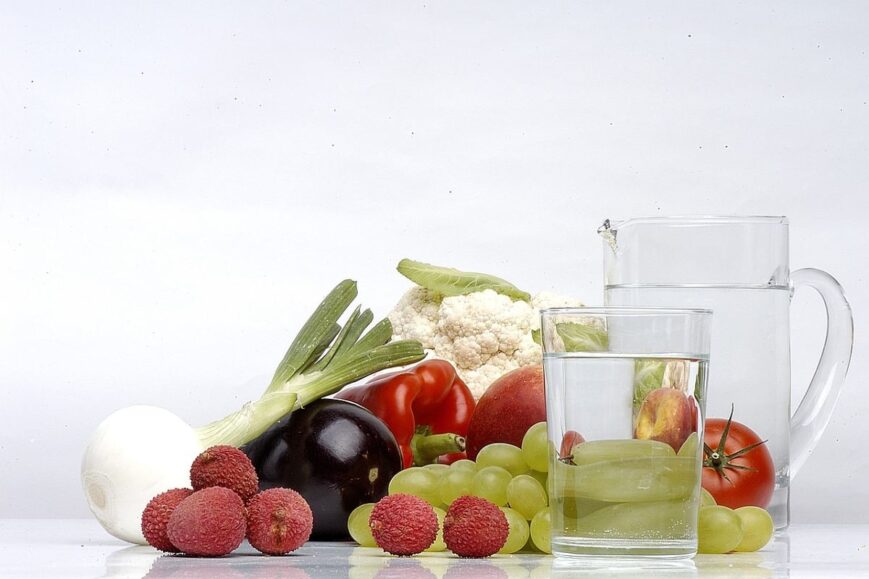Donating, whether through monetary contributions or by giving blood, sperm, or organs, is an immensely satisfying experience, both financially and otherwise. But being a donor goes beyond helping other people; it involves self-care, too.
Prioritizing personal health to effectively support important causes is of vital importance for donors. Donors should ensure their strength, nourishment, and wellness so they are always prepared to contribute when necessary.
This article elaborates on the vital strategies for well-being that donors should embrace as they sustain themselves while assisting those in need.
Comprehending the Significance of Physical Well-Being
Maintaining physical well-being is of vital importance to donors as it directly affects their ability to contribute. Sperm donors, for example, must be in optimal health and in the right age range so that the quality and viability of their sperm are ensured. Speaking of age, it massively impacts sperm donation, as it is considered that 39 is the upper limit for a sperm donor age. On the other hand, the minimum age requirement for sperm donors is 18, which is considered an age of solid emotional maturity and physical readiness.
To promote reproductive health, it is necessary to lead a lifestyle that includes consistent exercise, proper nutrition, and sufficient hydration. Engaging in physical activity enhances blood flow and energy levels while also improving fitness which helps with sperm production. Consuming foods filled with essential vitamins, minerals, and proteins not only supports healthy overall well-being but promotes the creation of high-quality sperm as well. Additionally, adequate hydration assists optimal bodily functions, resulting in healthier samples of semen.
Donor Mental and Emotional Well-Being
For those who make significant contributions, donations can generate strong emotions. Donors who seek to safeguard both their mental and emotional well-being should prioritize self-care practices that reduce stress levels such as meditation, deep breathing exercises, or yoga. Furthermore, devoting time each night to activities that bring enjoyment is also key to cultivating greater emotional balance overall.
For a sperm donor, for example, emotional well-being holds the same level of significance as physical health. The act of donating sperm has the potential to evoke an array of emotions, and it’s essential to regulate these sentiments toward long-lasting mental stability. A donor might encounter feelings such as responsibility or even curiosity about how their donation may shape someone’s life in the future. Therefore, donors must be mentally equipped when contemplating the possibility that recipients could seek biological information at some point in time ahead concerning offspring resulting from said donation.
Also, it’s vital to have a robust support network. Discussing your emotions with reliable friends, relatives or therapists can help with coping. In addition, certain donors may find it beneficial to interact with individuals who have undergone similar experiences as they provide companionship and empathy within the community.

Donors’ Nutritional Support
Diet plays an essential part in maintaining good health and can have an enormous impact on preparations for donation. For optimal sperm health, for example, donors are advised to consume foods high in zinc as it plays an integral part in its production and quality, including meats, eggs, fish, and shellfish.
Vitamin C found in citrus fruits such as oranges and strawberries helps protect against oxidative stress while simultaneously improving immunity system health. Antioxidants found in leafy greens as well as berries have also been proven to decrease reproductive stress effectively, improving reproductive function and fertility rates. Eating foods rich in these essential elements increases both the quantity and quality of donated sperm.
The Importance of Frequent Health Evaluations
Donors must undergo routine medical checkups to keep tabs on their health and pinpoint existing or potential concerns at an early stage. These checkups play a critical role in evaluating whether donors are fit enough for donation while also highlighting any areas that require further attention.
Blood donors, for instance, need regular hemoglobin checks to make sure their levels meet a healthy threshold. Sperm donors, on the other hand, must undergo comprehensive health assessments that include genetic screening, tests for sexually transmitted infections (STIs), analysis of their semen, physical exams, and consultation with healthcare providers to ensure their overall health status is being properly maintained. This is particularly vital given that only 5% of all male applicants get accepted as sperm donors.
The Bottom Line
Being a donor requires an unwavering dedication to personal well-being, which includes prioritizing physical health, emotional welfare, proper nutrition, and consistent medical checkups. Engaging in this noble act of generosity will prepare donors for their giving journey.
Prioritizing your health and well-being is crucial when it comes to making impactful contributions toward the causes you support. By maintaining top condition, both you as a donor and the recipients benefit greatly. Remember that taking care of yourself allows for long-term giving abilities, positively affecting others in need.
You May Also Like to Know: Exploring Decathlon Phulnakhar: Your Ultimate Sports Shopping Destination


